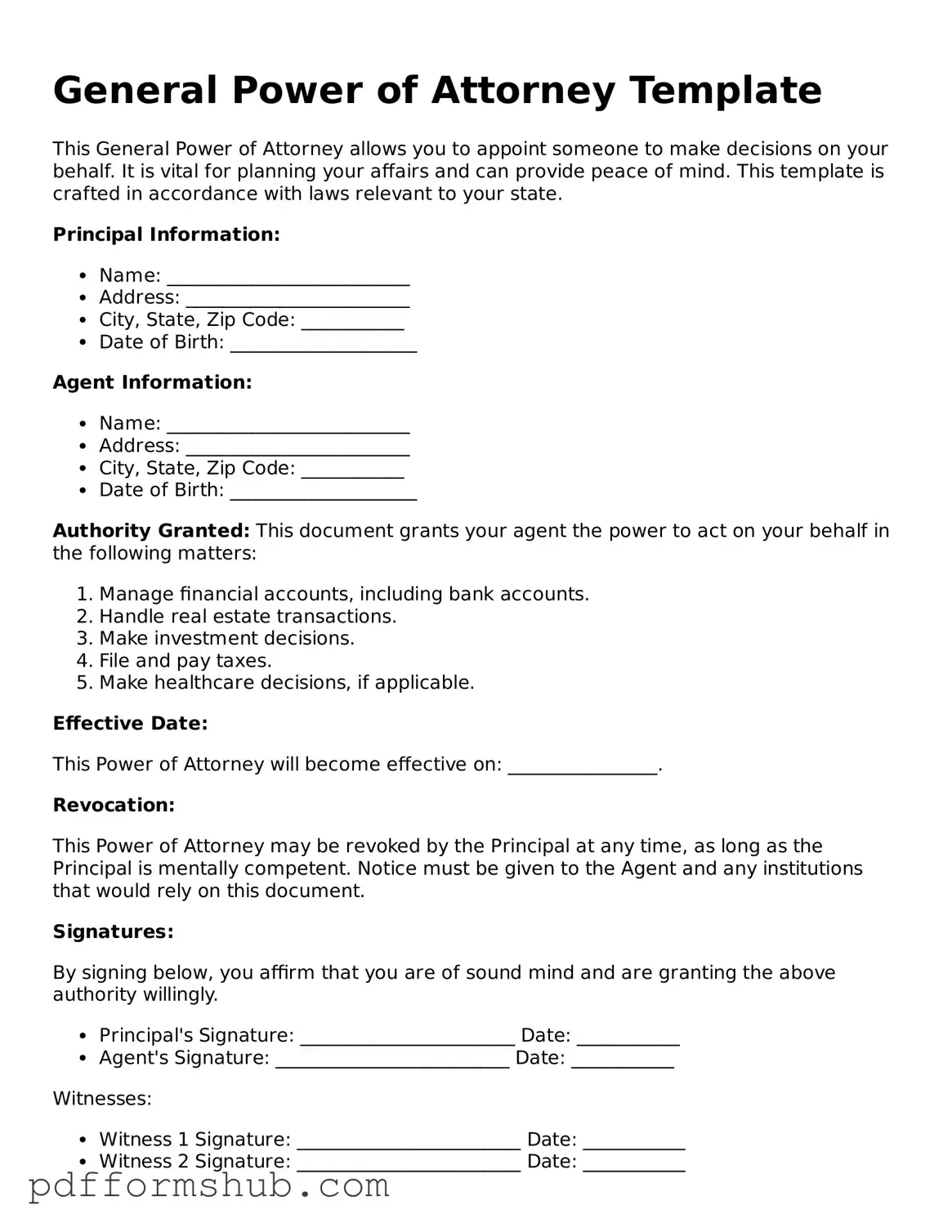Valid Power of Attorney Form
A Power of Attorney form allows an individual to grant authority to another person to make decisions on their behalf. This legal document can cover a wide range of responsibilities, from managing financial affairs to making healthcare decisions. To take control of your future, consider filling out the form by clicking the button below.
Customize Form

Valid Power of Attorney Form
Customize Form

Customize Form
or
Free PDF Form
Short deadline? Complete this form now
Complete Power of Attorney online without printing hassles.